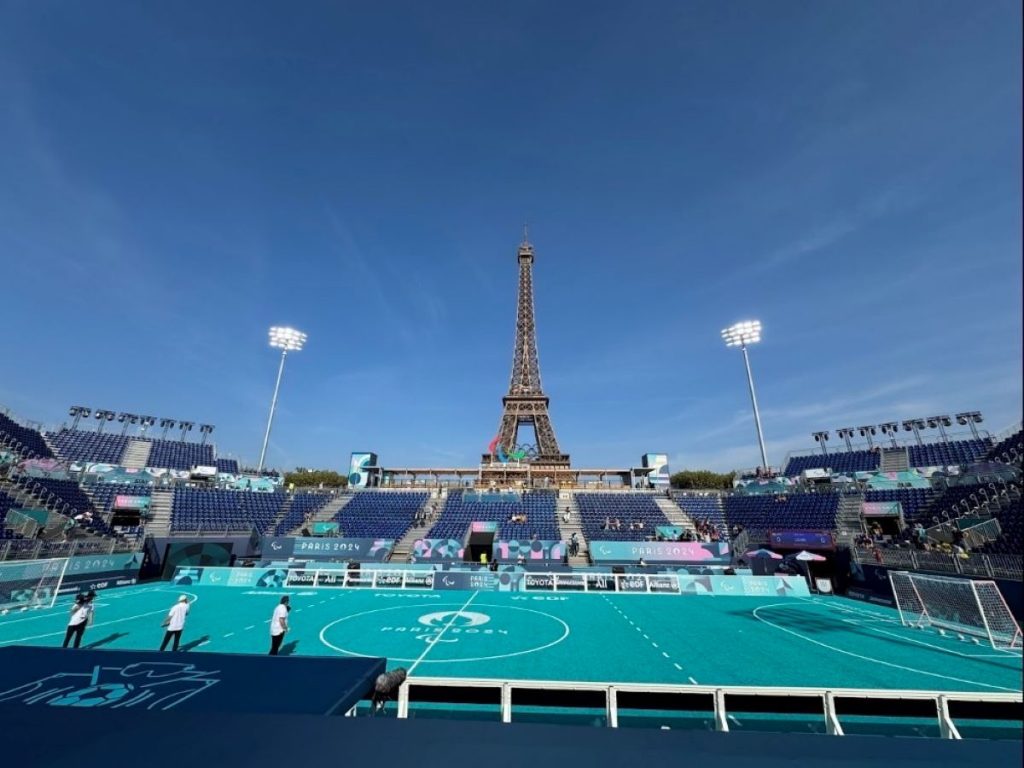
Gold medalist Takayuki Suzuki (right) with Junichi Oshiro (©Courtesy of Junichi Oshiro.)
Excitement over Japan's medal wins at the Paris 2024 Paralympics was palpable. How did Japan support its athletes? We take a moment to reflect with Junichi Oshiro, 47.
The Ajinomoto Co, Inc employee, who is deaf, played a key role in supporting the Japan national team's nutrition. Oshiro shared his unique experiences from the event in an interview with JAPAN Forward.
Specifically, he was part of a project to provide dashi broth near the athletes' village in Paris. They were there to support the Japan national team's nutrition at the Paris Paralympics.
At the same time, Paris is home to the world's first school for the deaf, the National Institute for Deaf Youth of Paris. It was founded by Father de l'Épée in the mid-18th century (established in 1750, nationalized in 1791). During the Paralympics, Junichi Oshiro visited this historic school.
It's also significant that Paris hosted the first-ever Deaflympics, the Olympic Games for the Deaf, in 1924. Next year, in November 2025, Tokyo will have the honor of hosting the Deaflympics.
Reflecting on his first Paralympic experience, Oshiro spoke of his many discoveries as he expressed hope for a more inclusive society in the next 30 years.
Excerpts follow.
Support for Athletes Throughout the Village
What were your impressions of the dining hall in the athlete's village?
Athletes with physical disabilities, such as those who are visually impaired or missing limbs, were always accompanied by assistants. These assistants helped them with everything — from getting their food, eating, and cleaning up, to returning to their rooms.
The dining hall was spacious, offering plenty of room for everyone to move around comfortably. Also, the buffet counters were set lower. That made it easier for wheelchair athletes to see and select their meals.
Since the Deaflympics is specifically for athletes with hearing impairments, does that mean there were no deaf athletes at the Paralympics?
When I spoke with various national teams, I found out there was a one-armed deaf athlete from the United Kingdom. Unfortunately, I didn't have the chance to meet the athlete.

Support for Spectators at Blind Soccer Matches
Were you looking forward to the blind soccer (officially, blind football) matches? How was the experience?
It's a world I could hardly imagine, so different from my own experience as someone with a hearing impairment. Watching these completely blind players move so dynamically was truly incredible.
What struck me most was how players called out before attempting to take the ball from another. It's a sport that demands a lot of mutual respect and consideration.
Continue reading the full interview on Japan 2 Earth, our affiliated website sparking a transition to a sustainable future by spotlighting the latest environmental innovations from Japan.
This report is published in cooperation with Ajinomoto, a logo partner of the JAPAN Forward website Japan 2 Earth.
RELATED:
- Paris Paralympic Games: Japan's Para Athletes Inspire the World
- Paris Paralympics: Japan's Success Fueled by Determination and Talent
(Read the column in Japanese)
Author: Mika Sugiura








